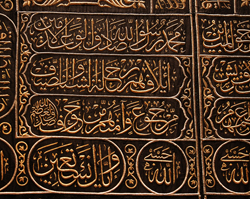Electronic cataloguing of medieval Arab manuscripts
The ‘Toward a Euro-Mediterranean memory: expert workshop on information systems for Arab manuscripts’ (Infoman) project was undertaken to electronically preserve and codify medieval Arab manuscripts and simultaneously increase innovation related to heritage documentation and preservation of value to all countries. The Infoman project was developed and implemented by the Centre for Documentation of Cultural and Natural History, Egypt. The centre is in a unique position to carry out such work given its affiliation with the Ancient Library of Alexandria, the ancient world’s single greatest archive of knowledge, and its support by the Ministry of Information Technology in Egypt. Development of standardisation procedures relied heavily on past work of the UNESCO Memory of the World programme. The project organised and implemented the Euro-Mediterranean Expert Roundtable Meeting where multidisciplinary experts from 35 Arab, Egyptian, European and Middle Eastern countries critiqued a pilot information system, discussed indexing standards for documentation and reviewed the status of laws and regulations regarding manuscript collections in EU countries and Mediterranean Partner Countries (MPC). Specifically, the Infoman project categorised an extensive collection of Arab manuscripts with respect to MARC (machine-readable catalogue) fields. MARC is a system by which data elements within bibliographic records are uniquely labelled for computerised databases and searches. It is a specific implementation of the international standard 'Information and documentation - format for information exchange' (ISO 2709-1996). The researchers then created a Structured Query Language (SQL) database, which is an American National Standards Institute (ANSI) standard defining the use of specific commands for queries. They trained national staff on the use of the database and developed a portal for Arabic manuscripts and a management protocol for the portal. Finally, Infoman increased national awareness of current laws and regulations regarding Arabic manuscripts and how they hinder the surfacing of private collections, leading to a collective historical amnesia. In summary, the Infoman project resulted in codification of Arabic manuscripts and creation of an extensive database all according to international library and information retrieval standards. The result should not only preserve an important cultural heritage but serve as a model for similar projects in other countries.







